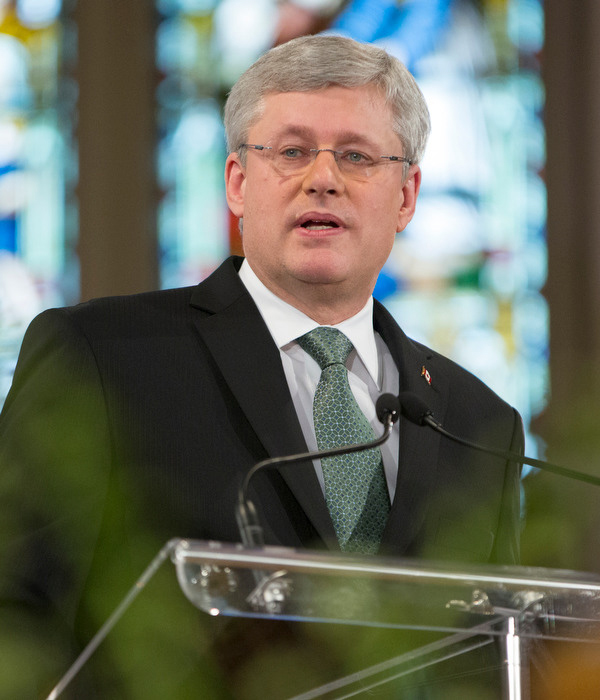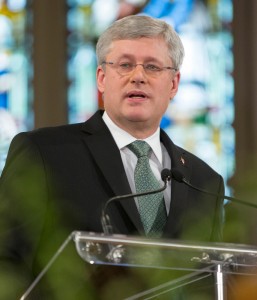The problems with Harper’s travel ban

Stephen Harper proposed a travel ban, which would “designate travel to places that are ‘ground zero’ for terrorist activity a criminal offence.”

A few weeks ago, as part of his broader election strategy, Stephen Harper proposed a travel ban, which would “designate travel to places that are ‘ground zero’ for terrorist activity a criminal offence.”
The proposal is an especially troubling type of pandering as it simultaneously encourages the Conservative base, takes focus away from more important and effective counterterrorism measures and perpetuates counterterrorism myths that evidence long ago refuted.
Additionally the proposal, despite lacking any details regarding scope, oversight and legality, is enough to elicit a defence from Conservative supporters as well as responses from other parties.
When Tom Mulcair and Justin Trudeau comment on the ban, Harper can in turn push the narrative that he is the only one focused on our safety. It’s all very clever and sad but it does provide an opportunity to make some significant clarifications regarding counterterrorism.
First, the proposal elicits a number of serious concerns and uncertainties, which is the point of such a vague announcement. What areas would be affected? What legitimate reasons for travel will be accepted? What oversight would the government have with respect to the ban and its associated criminal charges? What we do know is that the onus will be on the traveller to prove their reason for travel is unrelated to terrorism (guilty until proven innocent for the win) and if they fail to do so, they would be subject to criminal charges.
Visiting friends or family would likely be too casual of a travel purpose, but maybe a dying family member would do the trick. What are the chances people have dying family members in Syria or Iraq? Well, it’s a war zone. Good luck getting hospital records from Homs to the Canadian government for approval.
With respect to the efficacy of such a ban, limiting travel will not reduce the threat to Canadian safety. If someone wants to do harm to Canada, they hardly need to travel to Syria or Iraq to do so.
There is no evidence that Canadians would leave for another place, pick up a terrorist starter kit and then return to Canada to get violent. And no, the instability of the region, or wherever the ban would cover, would not make it any easier or more likely for terrorists to succeed.
All “rooted in” theories on terrorism are false.
Education, poverty, religion and failed states do not offer blanket explanations.
Inflation, unemployment, GDP growth, HDI, calories per capita and GINI index are not predictors of terrorist incidents. Broadly speaking, economic opportunity is unrelated to terrorism. Poverty does not cause terrorism and prosperity will not eradicate it.
Overall, all available evidence suggests a lack of correlation between failed states — according to the failed state index — and the presence of terrorist groups.
For example, the 9/11 attacks were conceptually rooted in Afghanistan but the logistical planning occurred in both Germany and Spain.
Terrorists operating within democratic states can use features of such a state to thrive. Welfare, education, communication networks and ease of financial exchange make Western countries attractive to transnational terror groups.
Someone is equally if not far more dangerous from a Canadian, American or Western European city than from Aleppo. Without a doubt, the Conservatives know this, despite what Harper and Jason Kenney would have you believe.
Empirical evidence on the topic is clouded by definitions that lack clarity. What qualifies as terrorism, who qualifies as a terrorist, what qualifies as an attack and what states are in fact failed make evidence useful, but inconclusive.
As Iraq and now Syria have shown, criteria for who is good or bad change almost daily, far quicker than policies can adapt. The worse the economy gets, the more Conservatives will talk terrorism and who knows what proposals will come next. Let’s just hope that terrorism stays far away in the land of people we don’t care about because we definitely couldn’t process terrorism in a good ole’ Canadian city like Moncton.

